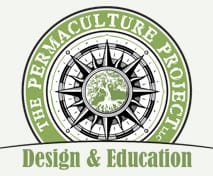Have you ever wondered what really happens in the soil? It’s like a magical world where countless tiny creatures live, work, and thrive, creating the foundation for life on Earth. Let me tell you more about this incredible environment.
Soil is made up of millions of tiny particles, mostly minerals and organic matter. These particles form a complex network where amazing processes take place. The minerals—such as oxygen, silicon, potassium, and calcium—combine with organic elements like carbon, nitrogen, and hydrogen. Together, they create a balanced environment essential for sustaining life and helping plants grow strong and healthy.

Beneath the surface, soil is teeming with life. It’s home to an astonishing diversity of microorganisms, including bacteria, fungi, protozoa, and nematodes. These organisms play a crucial role in soil health by breaking down organic matter and releasing nutrients in a process called decomposition. This process keeps the soil “alive” and ensures that nutrients are available for plants to absorb.

When building soil for a garden, it’s important to include the right nutrients. Nitrogen (N), phosphorus (P), and potassium (K)—known as NPK—are essential for plant growth. But the story doesn’t end there. Micronutrients like manganese, zinc, and calcium are equally important in smaller amounts, as they support key plant functions. Adding compost and incorporating beneficial microorganisms can dramatically improve soil health and productivity.
Water is another critical factor in soil health. Soil should hold enough moisture to sustain plants and microbes but not so much that it becomes waterlogged. Excess water can create oxygen-deprived conditions that encourage harmful microbes and fungi. A healthy balance of air, water, and nutrients ensures that plants and soil organisms thrive together.
Soil does more than just grow plants—it’s a living entity that connects us to the Earth. Plants absorb nutrients from the soil and, through photosynthesis, convert sunlight into energy-rich sugars. When we eat these plants (or the animals that feed on them), our digestive system breaks down the nutrients with the help of its own community of microorganisms, allowing us to absorb the energy we need to live.

In this way, soil and our bodies mirror one another. Both are ecosystems where life thrives through balance and cooperation. By taking care of the soil—adding compost, rotating crops, and respecting its natural processes—we not only grow healthier plants but also heal our planet and ourselves. Soil is more than dirt; it’s the foundation of life, a powerful resource we must protect and nurture for generations to come.
